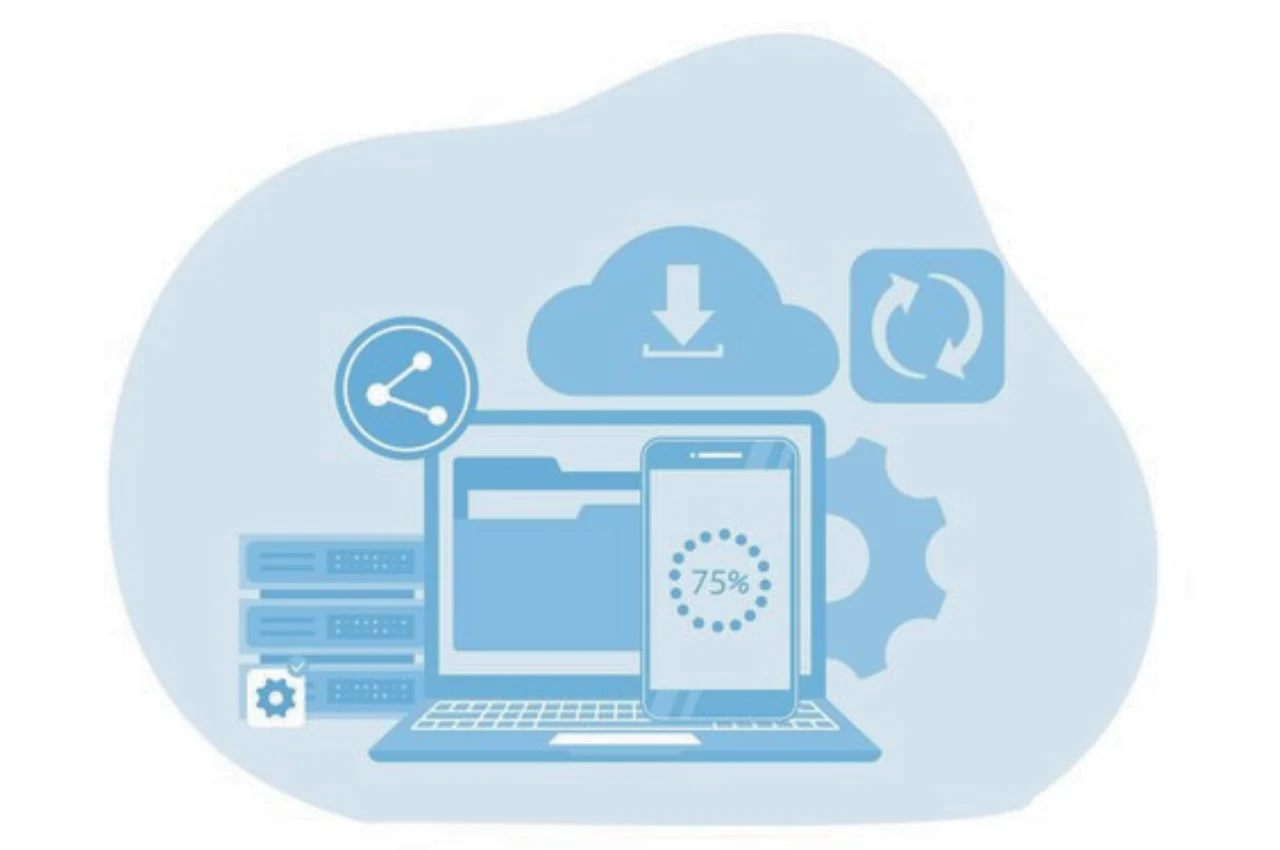Yes, you can update your website after hosting by making changes to its content, design, and functionality. Updating your website regularly is essential to keep it fresh, relevant, and engaging for your visitors.
It allows you to add new features, update information, fix any issues, and improve its overall performance. By regularly updating your website, you can ensure that it remains up-to-date with the latest trends, technologies, and industry standards. This not only helps in attracting and retaining visitors but also boosts your search engine rankings. So, don’t hesitate to make updates to your website even after it has been hosted.
Table of Contents
The Importance of Updating Your Website
Yes, you can update your website after hosting to keep it relevant and functional. Regular updates improve user experience, ensure security, and boost SEO rankings. By adding fresh content, fixing bugs, and optimizing for speed, you can enhance your website’s performance and attract more visitors.

Why Regular Website Updates Are Necessary
Regular website updates are essential for the success of your online presence. By updating your website regularly, you ensure that it remains relevant, functional, and user-friendly. In this fast-paced digital world, where technology and user expectations are constantly evolving, it is crucial to keep your website up to date. Let’s explore the reasons why regular website updates are necessary.
How Outdated Websites Can Affect Your Online Presence
Outdated websites can have a detrimental effect on your online presence. In today’s competitive online landscape, users are looking for websites that are visually appealing, easy to navigate, and provide a seamless user experience. An outdated website may not only fail to meet these expectations but also risk driving away potential customers. Let’s delve into the consequences of having an outdated website.
- Poor User Experience: An outdated website can lead to a poor user experience. Slow loading times, broken links, and outdated content can frustrate visitors and discourage them from exploring your website further.
- Negative Brand Perception: Your website is often the first point of contact between your brand and potential customers. An outdated website can create a negative impression of your brand, making visitors question the credibility and professionalism of your business.
- Decreased Search Engine Visibility: Search engines prioritize websites that offer a seamless user experience and relevant, up-to-date content. By neglecting regular updates, your website may slip in search engine rankings, resulting in decreased visibility and fewer organic traffic opportunities.
- Security Vulnerabilities: Outdated websites are more susceptible to security breaches and hacking attempts. As technology advances, so do the techniques employed by hackers. Regular updates help protect your website and its sensitive data from potential threats.
- Missed Business Opportunities: An outdated website can hinder your ability to attract and convert potential customers. By not keeping up with the latest design trends, user preferences, and technological advancements, you risk losing business opportunities to competitors with more modern and user-friendly websites.
In conclusion, regular website updates are crucial for maintaining a strong online presence. By ensuring your website remains relevant, functional, and secure, you enhance the user experience, improve brand perception, boost search engine visibility, and maximize business opportunities. Don’t let your website fall behind – prioritize regular updates to stay ahead in the digital world.
Website Maintenance Basics
Website maintenance is a crucial aspect of managing your online presence. It involves regular updates, monitoring, and optimization to ensure your website functions smoothly and continues to meet the needs of your audience. In this section, we will explore the basics of website maintenance, including what it entails, why it is important, and common tasks you should consider.
What is Website Maintenance?
Website maintenance refers to the process of regularly updating and managing your website to ensure its optimal performance and functionality. It involves various tasks, such as updating content, fixing bugs, upgrading software, and monitoring security. By keeping your website well-maintained, you can provide a seamless user experience, improve search engine rankings, and protect your site from potential threats.
The Importance of Website Maintenance
Website maintenance plays a vital role in the success of your online presence. Here are a few key reasons why it is crucial:
- Maintaining a positive user experience: Regular updates and fixes help ensure that your website is user-friendly, loads quickly, and functions properly across different devices and browsers.
- Enhancing security: By regularly updating your website’s software and monitoring for vulnerabilities, you can protect your site and visitors from potential security breaches.
- Improving search engine rankings: Search engines like Google favor websites that are regularly updated and provide a good user experience. By maintaining your website, you can boost your visibility and organic traffic.
- Building credibility and trust: A well-maintained website reflects professionalism and reliability, instilling confidence in your visitors and potential customers.
Common Website Maintenance Tasks
Website maintenance encompasses various tasks that ensure your website remains up-to-date and optimized. Here are some common tasks to consider:
- Updating content: Regularly refreshing your website’s content keeps it relevant and engaging for your audience. This includes updating product information, blog posts, news, and any other relevant content.
- Checking for broken links: Broken links can frustrate visitors and negatively impact your website’s user experience. Regularly scan your website for broken links and fix them promptly.
- Testing website speed: Slow-loading websites can lead to high bounce rates and dissatisfied visitors. Regularly test your website’s speed and optimize it for faster performance.
- Backing up data: Regularly backing up your website’s data ensures that you can restore it in case of any unforeseen issues or data loss.
- Monitoring security: Implement security measures such as firewalls, SSL certificates, and regular malware scans to protect your website from potential threats.
By prioritizing website maintenance, you can ensure that your online presence remains effective, secure, and user-friendly. Regular updates and optimizations will help you stay ahead of the competition and provide a positive experience for your website visitors.
Updating Your Website After Hosting
Updating your website after hosting is a common practice that website owners do to keep their sites up-to-date with the latest information, content, and design. It is possible to update your website after hosting, and it is essential to do so to maintain a competitive edge and enhance user experience.

Once you’ve hosted your website, you may think that your job is done. However, it’s important to update your website regularly to keep up with the latest trends and technologies. Updating your website is crucial for better performance, user experience, and SEO rankings. In this blog post, we’ll discuss how to update your website after hosting and the benefits of doing so.
Choosing a Website Builder with Update Capabilities
When choosing a website builder, it’s important to consider its update capabilities. Look for a website builder that allows you to easily update your website’s content and design. Some popular website builders like WordPress, Wix, and Squarespace offer a user-friendly interface that allows you to update your website without any coding knowledge. Make sure to choose a website builder that suits your website’s needs and aligns with your goals.
How to Update Your Website Content
Updating your website content is essential for keeping your visitors engaged and informed. To update your website content, follow these steps:
- Log in to your website builder’s dashboard.
- Navigate to the page or post that you want to update.
- Edit the content using the editor provided by your website builder.
- Preview the changes and make sure everything looks good.
- Publish the changes.
It’s important to update your website content regularly to keep your visitors engaged and improve your SEO rankings. Updating your website content also helps to showcase your expertise and authority in your field.
The Benefits of Regularly Updating
Your Website There are many benefits to regularly updating your website, including:
- Improved user experience: Regularly updating your website can help improve your user experience by providing fresh, relevant, and informative content.
- Better SEO rankings: Updating your website content signals to search engines that your website is active and relevant, can help to improve your SEO rankings.
- Increased website traffic: By regularly updating your website, you can attract more visitors and keep them engaged for longer periods of time.
- Improved brand reputation: Updating your website with fresh and relevant content can help to improve your brand reputation and establish you as an authority in your field.
In conclusion, updating your website after hosting is essential for better performance, user experience, and SEO rankings. Choose a website builder that allows you to easily update your website’s content and design, regularly update your website content, and enjoy the benefits of an updated website.
Maximizing Your Online Presence
Having a strong online presence is essential for any business or individual looking to succeed in today’s digital world. Your website is often the first point of contact for potential customers, making it crucial to ensure that it accurately represents your brand, products, or services.

Why a Strong Online Presence is Important
A strong online presence can help establish credibility and trust with your audience, increase brand visibility, and drive more traffic to your website. It also provides an opportunity to engage with your target audience and build lasting relationships.
Tips for Maximizing Your Online Presence
- Regularly update your website content to keep it fresh and relevant.
- Leverage social media platforms to connect with your audience and drive traffic to your website.
- Optimize your website for search engines to improve visibility and reach a larger audience.
- Create high-quality, valuable content that resonates with your target audience.
- Monitor and respond to customer feedback to show that you value their input.
How Regular Website Updates Can Improve Your Online Presence
By regularly updating your website with fresh content, you can demonstrate your commitment to providing value to your audience. It also signals to search engines that your website is active and relevant, which can improve your search rankings and attract more organic traffic.
Conclusion
Updating your website after hosting is not only possible, but it is also essential for its success. With the ever-changing digital landscape, updating your website regularly can help you stay ahead of your competitors and improve your search engine rankings.
Whether you want to add new features, change the design, or update your content, it is essential to ensure your website is up-to-date and relevant to your audience. So, don’t hesitate to make changes to your website after hosting. It’s a crucial step toward your online success.


